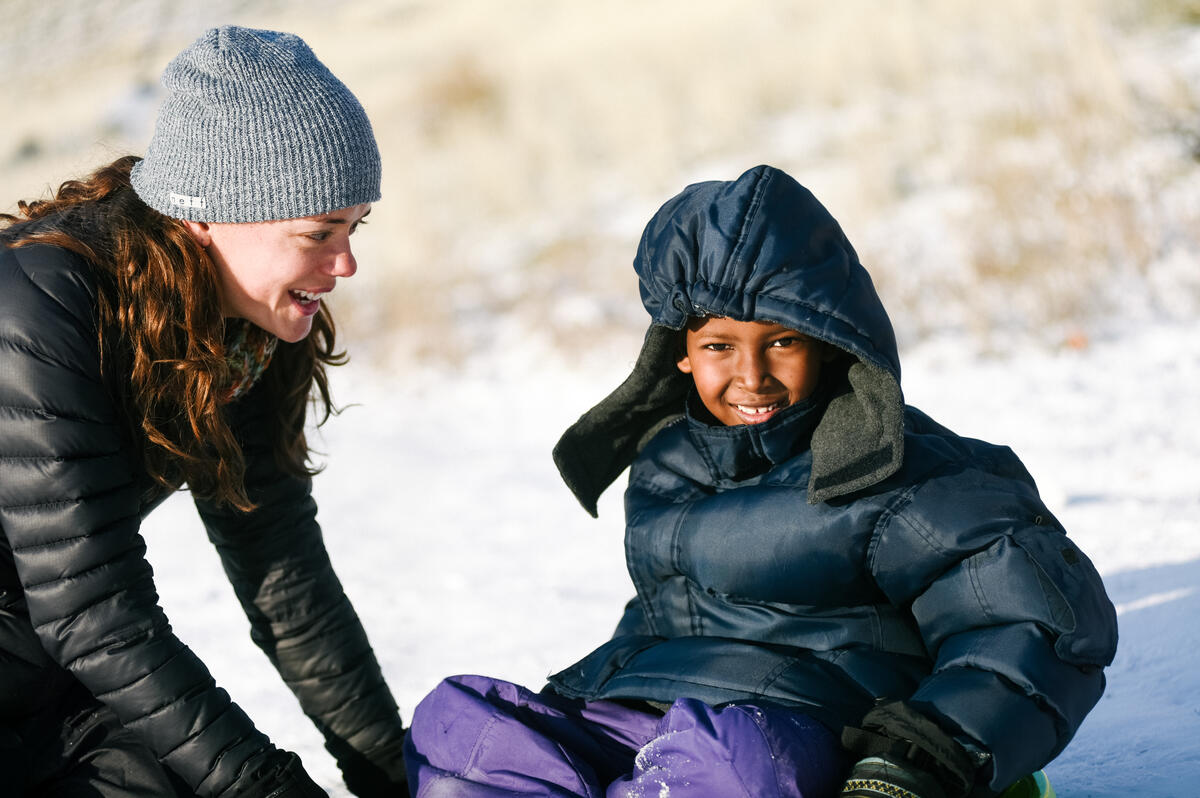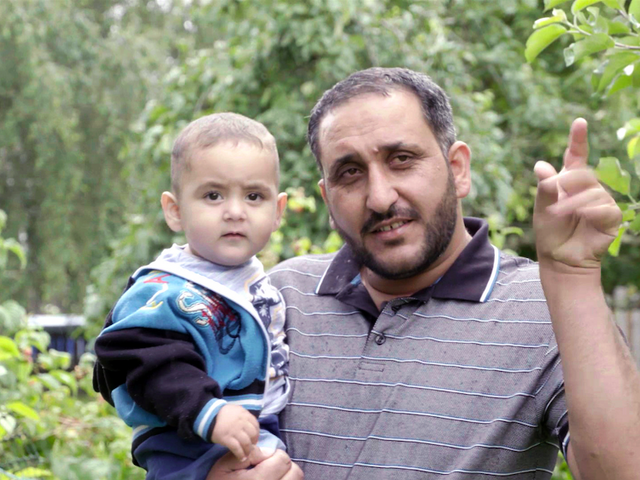
Imagine being forced to flee your home. For over 65 million people – more than the entire population of the UK, that’s reality.
More people have been uprooted due to war and violence today than at any time since World War II.
How we respond when people are fleeing for their lives says a lot about us. Here’s why it’s as much about the rescue of us, and our values, as it is about the rescue of those in great need of help.
Hope for a better future
Twenty people are displaced by conflict and disaster every minute.
People like Khaled, whose life changed forever in March 2014 when his house in Syria was hit by heavy shelling. “Everything was destroyed. My dreams, everything we built, gone in an instant,” he told us.
That day he lost a number of his family members, including two of his children. His own leg was shattered. After spending around a year in Lebanon receiving treatment, he was offered the opportunity to apply for resettlement, and arrived safely in Sweden a year ago.
“It was difficult for us in Lebanon. But it’s been good to come to Sweden – to become healthier and to work.”
“I have Swedish friends, who I invite home. But I hope for the other refugees who are stuck in Lebanon. I speak to relatives who still have a very difficult time.”
How we can really make a difference

We can give vulnerable refugees like Khaled and his family a safe place to call home.
We can work together to make this an opportunity for refugees as well as for Europe. It starts with making sure the most vulnerable refugees can reach safety.
These are people who have already been forced from their homes. It’s about giving them the chance to move permanently to another country, from the place they’re living temporarily.
We’re calling for a structured, manageable European resettlement programme. Once resettled refugees arrive, local communities and authorities are involved in supporting them, whether it's learning the local language, helping them to find work, or helping children settle into school.
The technical bit: how it works
Resettlement is widely regarded as an important part of the solution to the refugee crisis. Evidence shows it offers social and economic benefits to both refugees and new host countries. Here's how the process typically works:
- The UN Refugee Agency identifies particularly vulnerable refugees for resettlement.
- The UN then gives a list of people for resettlement to the governments of countries that resettle, based on the needs of the refugees and the conditions of the resettlement countries.
- Resettlement countries review the case and screen the refugees submitted for resettlement.
- Once accepted by a resettlement country, refugees are provided with information about life in their new home country, and are then safely flown over and settled into a community that is expecting them.
Why this is urgent
This year, our governments and representatives in the European Parliament have the chance to agree on a coordinated response to the crisis, and we want to make sure it happens.
Right now, they are debating a new law that would mean more vulnerable refugees could find safety here in Europe. This is a defining moment for refugees. Let’s be on the right side of history; let’s make sure this vote counts.
We can only do this together
Together, we can bring hope and humanity to a world that’s torn apart.
Join Ben & Jerry's and the International Rescue Committee and email your representative. You can help vulnerable refugees reach safety. You can help vulnerable refugees reach safety. Ben and Jerry’s latest flavour, Home Sweet Honeycomb has been launched to help spread the word. The more people who are together for refugees – the more likely it is that we can make this happen. Get involved and learn more here.